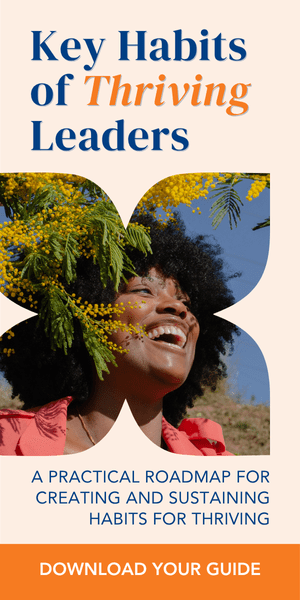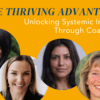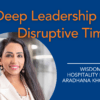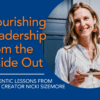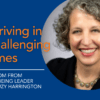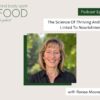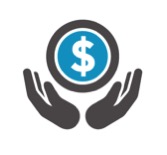 We are a planet of 7 billion potential innovators. Studies of human development, such as those shared in this terrific Crash Course Big History, highlight major epochs we’ve undergone—from foraging peoples and agricultural societies to the industrial revolution and today’s digital age. With each transformation, we’ve reinvented our worldviews, our values and motivations, and the ways know each other and ourselves. Simply put: creativity is part of who we are.
We are a planet of 7 billion potential innovators. Studies of human development, such as those shared in this terrific Crash Course Big History, highlight major epochs we’ve undergone—from foraging peoples and agricultural societies to the industrial revolution and today’s digital age. With each transformation, we’ve reinvented our worldviews, our values and motivations, and the ways know each other and ourselves. Simply put: creativity is part of who we are.
So when Diego Isabel La Moneda, cofounder of Global Hub for the Common Good, sent World Economic Forum founder Klaus Schwab the message …
“Let’s change the economy to change the world.”
… I believe he was calling us, at the highest level of our consciousness, to tap into our collective creativity to design a world where we recirculate wealth, instead of allowing it to stagnate in dead-end cul-de-sacs, so that a higher standard of living and greater opportunity are opened for all. Idealistic? Maybe. But La Moneda isn’t the only one with that sentiment.
He is part of a growing global voice for rethinking how a prime instrument driving our world today—the economy—can better facilitate and amplify wellbeing for people and the planet. Consider these four innovative examples:
- In Doughnut Economics, renegade economist Kate Raworth outlines seven ways to think like a 21st-century economist, for instance, one way is to break our personal and societal addiction to growth. Raworth is propelled by a provocative question: How can we turn economies that need to grow, whether or not they make us thrive, into economies that make us thrive, whether or not they grow? (Contemplate that a bit.)
- Social scientist and attorney Riane Eisler proposes our economies give visibility and value to the most essential human work: the work of caring for people and nature. (See her TEDx talk about the implications of this economy of care.)
- Filmmaker and community movement-maker Greg Hemmings believe businesses can thrive—and contribute to an economy of love and wellbeing for all—when they are devised based on the principle of regeneration.
- Julian Dobson, editor of NewStart magazine, calls for using higher-order tools to make decisions in our current economy. This wisdom economy means applying more robust ethical frameworks to economic changes, blending the act of mindful reflection with our drive for innovation, and building a sense of “enough-ness” within our individual and societal cultures, rather than seeking constant growth.
Changing the economy to create a more just and inclusive world can seem daunting. So, I frequently remind myself: we are a planet of 7 billion potential innovators. How can we harness our creativity and innate leadership to create a world that works for everyone?
If you’d like to learn more about how to activate growth and thriving in your life, leadership and organization—and contribute to the growing movement to accelerate thriving globally—please contact me at renee@wisdom-works.com.
READ MORE
- The Pivot That Turns Challenge Into Growth
- Ready To Disrupt Yourself On Purpose? Try Uncentering!
- The Power of She: A Doorway to Empower Us All
- Leadership For Thriving Inside And Out
- What Effective Leaders Know In Their Bones: The 6 Powers of Thriving
- Your Inner Game Runs Your Outer Game
- Shifting From Reactivity To Wellbeing
- The Path Of The Evolving Leader: Leadership As Practice
- Is The Planet Ready For A Different Way Of Leading?
- Leading From Authenticity: Boosting Your Energy, Impact, and Wellbeing

